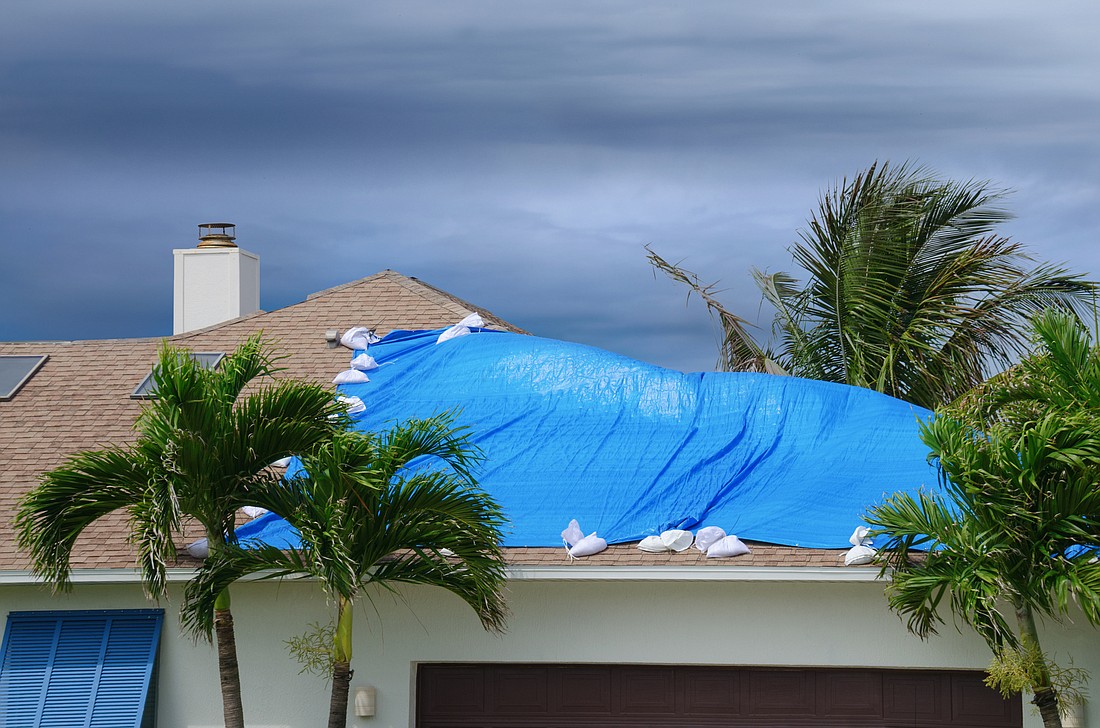- April 2, 2025
-
-
Loading

A new report bears out what many observers, professional and otherwise, have been saying for years: The reason Florida taxpayers pay so much for property insurance is attorney fees.
According to the Insurance Information Institute, Florida homeowners pay, on average, $4,231 in premiums. That’s three times what the average is in the U.S. — $1,544.
The report blames the attorney fee structure as the cause and cites a number many critics of Florida’s systems, including Gov. Ron DeSantis, regularly point to: Nationwide, 79% of all homeowner lawsuits over claims are filed in the state while making up only 9% of actual insurance claims.
The institute also blames roof contractors who get policyholders to sign assignment of benefits and then sue insurance companies.
“Floridians are seeing homeowners’ insurance become costlier and scarcer because for years the state has been the home of too much litigation and too many fraudulent roof-replacement schemes,” Sean Kevelighan, CEO of the New York industry think tank, says in a statement.
“These two factors contributed enormously to the net underwriting losses Florida’s homeowners’ insurers cumulatively incurred between 2017 and 2021.”
The root of the problem goes back to a 2017 Florida Supreme Court ruling that allowed judges to award up to 2.5 times a plaintiff’s regular hourly billing rate when a policyholder wins, the institute says. This translates into attorneys “receiving several hundred thousand dollars for a simple lawsuit.”
What this does, critics have long said, is give attorneys an incentive to file lawsuits and pushing cases that might otherwise be easily settled.
“Under the best circumstances, insurers would have to amass more capital to pay claims and protect themselves from bankruptcy-triggering losses. That means increasing premiums,” the report says.
The Florida Justice Association’s property insurance section says lawyers are being unfairly targeted.
The organization attorneys work with consumers who are trying to collect on claims they are legitimately entitled to and that the fees allowed for work done are calculated by judges who carefully scrutinize the requests.
In addition to increasing premiums, the critics and the institute say, the current fee structure drives insurance companies either into insolvency or forces them to pull back from writing policies in Florida. The report says net underwriting losses for Florida domestic property companies exceeded $1 billion in both 2020 and 2021.
When companies go under or are unable to write in the state, consumer choices are limited, and they turn to the state’s Citizens Property Insurance Corp., which was created as the insurer of last resort.
According to the report, Citizens had 931,357 policies in place as of June 30. That’s up 46% from June 2021 when it had 638,263 policies and up 96% from June 2020 when it had 474,630 policies. Having these many policies on its books could prove catastrophic for policyholders and taxpayers if a major storm were to hit the state.
But it’s not only a bad hurricane that Citizens and state officials are concerned about. According to institute, litigating cases this year could cost Citizens as much as $100 million.
Florida lawmakers did try to tackle attorney’s fees during a special session in May.
The bipartisan reform packaged that was passed and signed into law by DeSantis created a new standard for the application of attorney fee multipliers and limited the assignment of attorney’s fees in property insurance cases, in the hope of disincentivizing frivolous claims.
But it’s too soon to tell how much of an impact the reforms will have with some critics already saying what was approved was just a band aid.